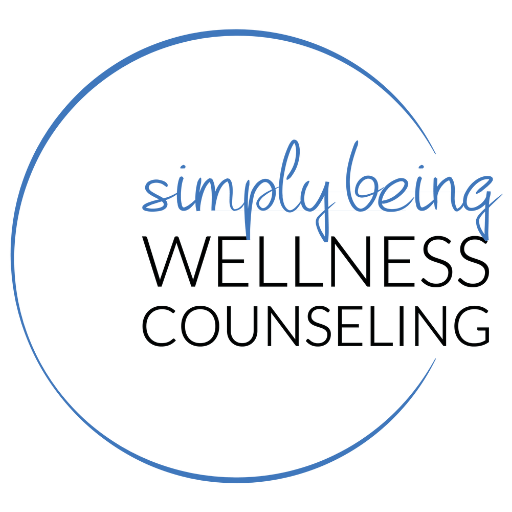
Substance And Alcohol Abuse
Asking for Help Is A Sign Of Strength
We’re here to help you prioritize your well-being with ease. Schedule a consultation with us today, and let our passionate team of therapists empower your transformational journey. Discover the support and guidance you deserve on the path to lasting positive change.
Take The First Step Toward Creating A Plan For Recovery
Have you been told you drink too much? Do you find yourself reaching for a substance when things feel too overwhelming to deal with? Or have you been thinking you might have a problem with alcohol or drug use? If you answered yes to any of these questions, then it sounds like you are rethinking your relationship with alcohol and drugs.
Alcohol use is one of the most socially acceptable forms of substance use. And yet, many struggle with misusing it. Alcohol and drug addiction typically start off as a way to escape the realities of this life, if only for a few moments. For some, that escape becomes necessary to make it through the day. Whether you’ve had challenges with problem drinking or have participated in substance recovery treatment in the past, our goal is to help you create a plan for recovery.
Here are some truths about drug and alcohol addiction:
Addiction is considered a disease.
You can be genetically predisposed to problems with alcohol or drugs.
Many people experience mood and other mental health challenges with substance use.
Acknowledging that you or someone you care about has a chemical addiction is difficult. In general, chemical dependency exists when alcohol or drug use interferes with family and social life, job, health, emotional stability, and/or spiritual life. Recovery from an alcohol or drug use problem needs time, work, and a healthy support system.
Mindset Shifts For Your Sobriety Journey
We often tell ourselves stories that justify the abuse of alcohol and substances. This is our mind and body’s attempt to maintain access to the chemicals that appear to be a sense of comfort. Here are a few mindset shifts to help you unpack your relationship with alcohol and substances to stay focused on your recovery journey.
-

"It's the only way I know how to deal with things."
You may have had this thought before. You drink or use substances to help you cope with your stressors. It’s been the one constant thing that you know can quickly alleviate the feeling of overwhelm. Therapy can help you find healthier ways to cope with life’s stressors.
-

"It runs in the family."
In 2021 over 20 million people were diagnosed with a substance use disorder. Only half received treatment and support. Many people begin their relationship with drugs and alcohol at a young age. What we do know is that there is a genetic predisposition to substance use disorders, and environmental factors also play a significant role in their development.
-

"I want to stop, but I don't know where to start."
It’s okay if you don’t know where to start. Start with why you want to change your relationship with alcohol or drugs. Start with understanding how this has effected your life, your relationships, your career, etc. Recovery begins when you make the decision to change.
Four Stages Of Therapy
Our main approach to recovery treatment is to use CBT and Motivational Interviewing. These two counseling approaches provide helpful interventions to develop other strategies for coping with life’s stressors and improve the mindset for healthier habits.
Stage 1: Initiation
When you seek help from a competent alcohol and drug rehab center, the first step of your recovery, treatment initiation, begins.
Whether you seek assistance deliberately or are coerced into it by circumstances, your recovery will begin with a professional treatment program.
You may feel conflicted about giving up your drug of choice permanently in the early hours and days of your treatment, and you may believe that your substance addiction issue is not as severe as others.
In the early stages of recovery, ambivalence and denial might be your toughest adversaries. An individual's alcohol and drug use history will be obtained during this stage of treatment, the treatment program will be explained, and the counselor will work with the individual to establish a tailored treatment plan.
Stage 2: Abstinence
You will begin the second stage of rehab, known as early abstinence if you have made a commitment to continue treatment for your drug addiction issue. Early alcohol abstinence is highly connected with excellent treatment results. This might be the most difficult stage to deal with due to a variety of issues, including:
• Withdrawal symptoms persist
• Physical desires
• Psychological reliance
• Triggers that might lead to a relapse
Cravings, social pressure to drink, and high-risk scenarios that might induce alcohol use are all challenges at this point of therapy. During this early period of abstinence, your skilled addiction counselor will begin to teach you the coping skills you will need to live a clean lifestyle. The techniques you learn today will assist you throughout your rehabilitation. Among the techniques that can be beneficial are:
• Encouraging healthy activity participation
• Finding alternate activities to engage in instead of resorting to alcohol and drugs
• Participating in self-help groups that provide knowledge and support
• Recognizing contextual triggers for cravings, such as people, places, and things
Stage 3: Maintenance
You will progress from the early abstinence stage of recovery to the third stage, sustaining abstinence, after roughly 90 days of consistent abstinence. One of the key goals of this stage of treatment is to keep sobriety by preventing relapse. You will be taught the warning indicators as well as the processes that might lead to a relapse.
During this stage of your therapy, you will also learn to use the techniques you gained in early abstinence in other aspects of your life, allowing you to maintain a really sober existence. You'll realize that your future quality of life is dependent on more than just avoiding using. You will discover new coping strategies and tools to assist you:
• Addiction substitution should be avoided.
• Create positive relationships.
• Adopt a drug-free lifestyle.
• Learn about work and money management.
• Control your rage
• Make use of exercise and nutrition.
Stage 4: Recovery
You will reach the fourth and last stage of your therapy after about five years of abstinence: advanced recovery. It is at this stage that you apply all of the tools and skills you have gained during your rehab treatment to live a full, meaningful life. At this time, the following strategies may be useful:
• Setting long-term objectives
• Creating a regular daily schedule
• Developing social interactions with non-drinkers
• Participating in non-alcohol-related leisure activities
• Finding methods to go outside oneself to find pleasure and contentment, whether through religion, spirituality, community service, or social activism
Learning to employ these tactics will not only help you stay sober, but you will also be able to become a healthier person, a better spouse and parent, a productive member of society, and a decent neighbor and citizen. Recovery entails far more than simply remaining sober. It is the process of learning to live a happier and healthier life.





